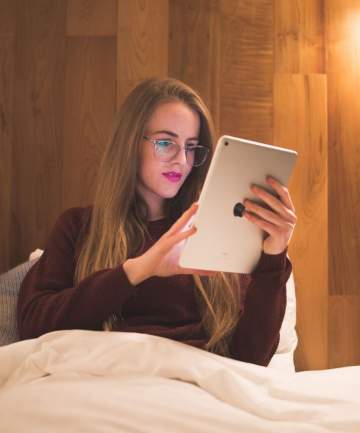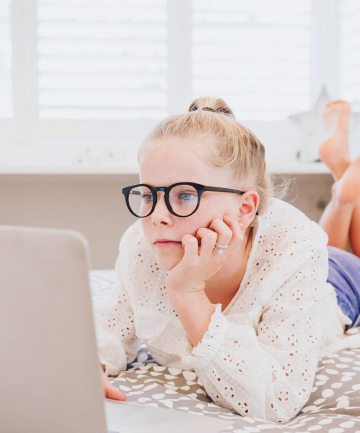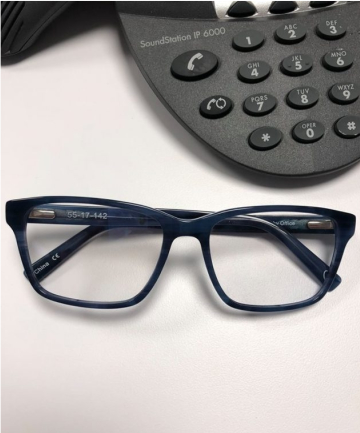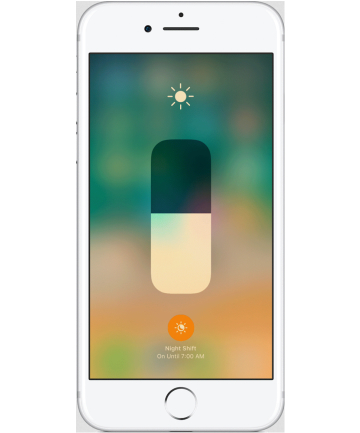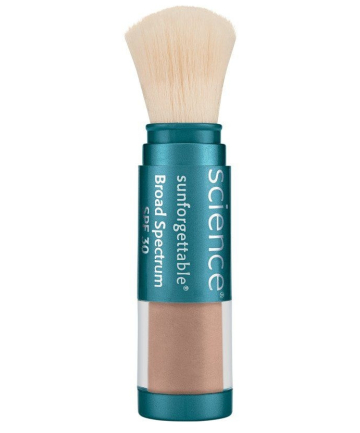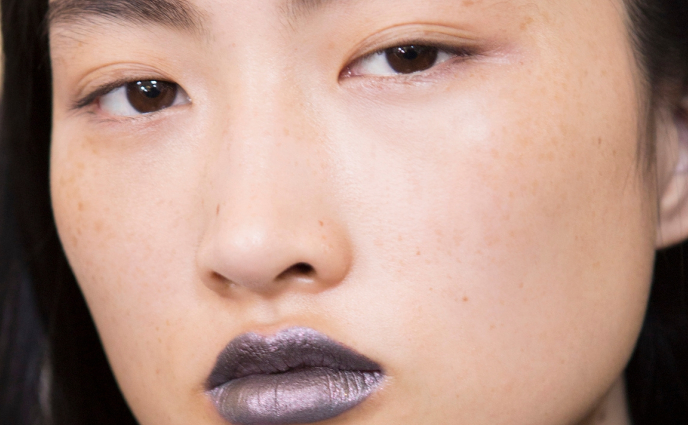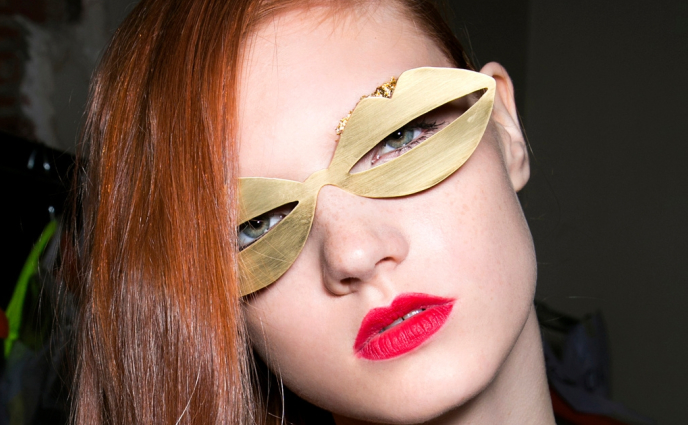"Blue light exposure is cumulative and is one of the major risk factors contributing to frequency and severity of macular degeneration, the nation's leading cause of severe vision loss and legal blindness in adults," explains ophthalmologist Dr. Alan Mendelsohn. "More commonly than macular degeneration, blue light is the instigator of digital eye strain, which is characterized by eye fatigue, blurred vision, red and/or dry eyes, eye discomfort and decreased productivity. Sometimes headaches can also be present."
Schlessinger also notes that studies have found blue light to affect circadian rhythm, which can affect how well you're sleeping. "Sleep deprivation can cause premature aging, which is never a good thing, but it can also affect eyes because it's one of the types of light that human eyes are sensitive to. Blue light has some of the highest energy wavelengths and the shortest lengths, which causes flickering. This can cause eye strain, headaches and fatigue since our eyes don't come with a built-in blue light filter."
Image via @baxterblue_
Schlessinger also notes that studies have found blue light to affect circadian rhythm, which can affect how well you're sleeping. "Sleep deprivation can cause premature aging, which is never a good thing, but it can also affect eyes because it's one of the types of light that human eyes are sensitive to. Blue light has some of the highest energy wavelengths and the shortest lengths, which causes flickering. This can cause eye strain, headaches and fatigue since our eyes don't come with a built-in blue light filter."
Image via @baxterblue_
Blue light is especially problematic for children. "Anyone under the age of 9 is particularly vulnerable to eye damage from blue light emitted by computers, smartphones and other handheld devices," says Grossman. "Young children's eyes have not fully developed the protective pigment to help filter harmful blue light. Babies have little, if any, melanin pigment in their eyes, which is essential for filtering out blue light."
Most parents will tell you smart devices are imperative for keeping their kids entertained, but it's clearly important that they restrict the use of handheld devices in young children and, at the very least, Grossman advises to make sure your children consume plenty of fresh fruits and vegetables with plenty of important carotenoids to help protect their eyes from blue light damage.
Image via @baxterblue_
Most parents will tell you smart devices are imperative for keeping their kids entertained, but it's clearly important that they restrict the use of handheld devices in young children and, at the very least, Grossman advises to make sure your children consume plenty of fresh fruits and vegetables with plenty of important carotenoids to help protect their eyes from blue light damage.
Image via @baxterblue_
Wear UV-resistant sunglasses when you're outside. "Favor sunglasses that are amber-tinted, reducing blue light rather than gray, green or bluish lenses," says Grossman. He also suggests investing in glare screens for your desktop, laptop and handheld displays that reduce blue light, limiting exposure to LED/fluorescent-based light and instead look for lighting options that simulate daylight with broad spectrum color and following the 20-20-20 rule. "Every 20 minutes that you use the computer or any electronic device, look at least 20 feet away for at least 20 seconds. This gives the tiny muscles in your eye a chance to relax."
He also recommends blue light glasses like Baxter Blue or Healthy Office. "Blue light filter glasses are the best way to mitigate the harmful and uncomfortable symptoms of blue light," says Grossman. "These lenses are designed to effectively filter blue light without changing the clarity of the lens. You can also add anti-glare to the computer glasses for optimal comfort on the computer."
Baxter Blue's lenses have been specifically developed to filter out the short wave harmful blue light without changing the color perception of a digital screen. The blue light filtering component is part of the actual lens, not a coating on the outside and they also have an anti-reflective coating to reduce the glare of digital screens to enhance the viewing experience as well as offering 100 percent UV protection. Similarly, Healthy Office's versions are designed to block harsh blue light, reduce eye strain and improve sleep.
Image via @healthyoffice
He also recommends blue light glasses like Baxter Blue or Healthy Office. "Blue light filter glasses are the best way to mitigate the harmful and uncomfortable symptoms of blue light," says Grossman. "These lenses are designed to effectively filter blue light without changing the clarity of the lens. You can also add anti-glare to the computer glasses for optimal comfort on the computer."
Baxter Blue's lenses have been specifically developed to filter out the short wave harmful blue light without changing the color perception of a digital screen. The blue light filtering component is part of the actual lens, not a coating on the outside and they also have an anti-reflective coating to reduce the glare of digital screens to enhance the viewing experience as well as offering 100 percent UV protection. Similarly, Healthy Office's versions are designed to block harsh blue light, reduce eye strain and improve sleep.
Image via @healthyoffice
There's a rise of software and apps that claim to filter blue light by changing the color of the screen to a reddish-orange hue (like Apple's Night Shift). "These apps adjust the whole temperature of your screen, which has its benefits in eye comfort, but they affect your color perception," says Grossman. "Digital screens also naturally emit high-energy light, which still enters your eye regardless of blue light-curbing software. These apps do not change the actual LEDs that are producing blue light."
Image via Apple
Image via Apple
As mentioned, the sun is also a culprit. "Fortunately, many new sunscreen formulas are now incorporating blue light filters for added protection, like Colorescience, which recently came out with the Sunforgettable Total Protection Brush-On Shield SPF 50 that protects against blue light in an easy-to-use brush-on SPF. Or, if you prefer a different type of product, Osmotics offers the Inner Light Biodefense Primer that blocks blue light in a translucent primer," says Schlessinger.


